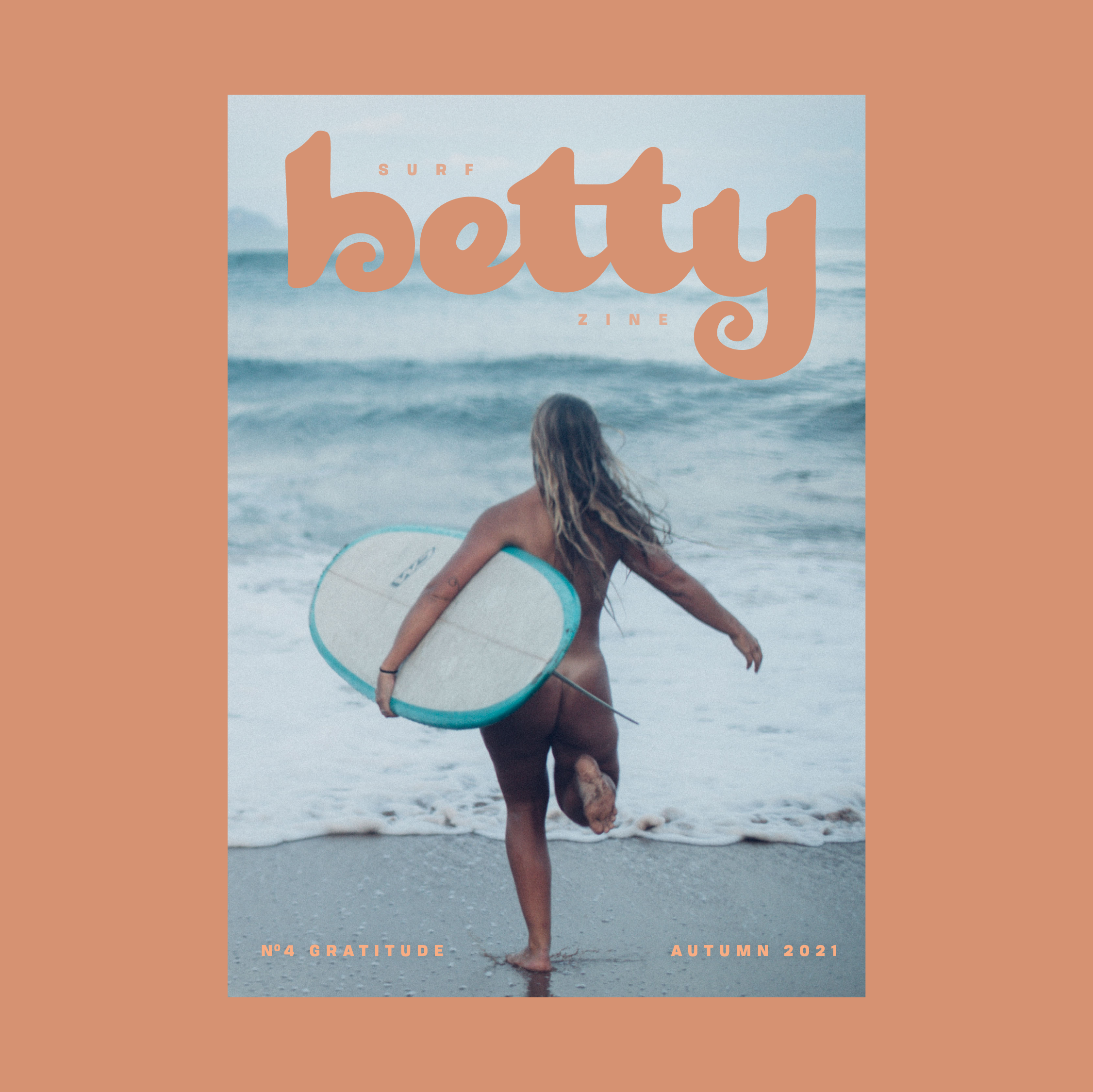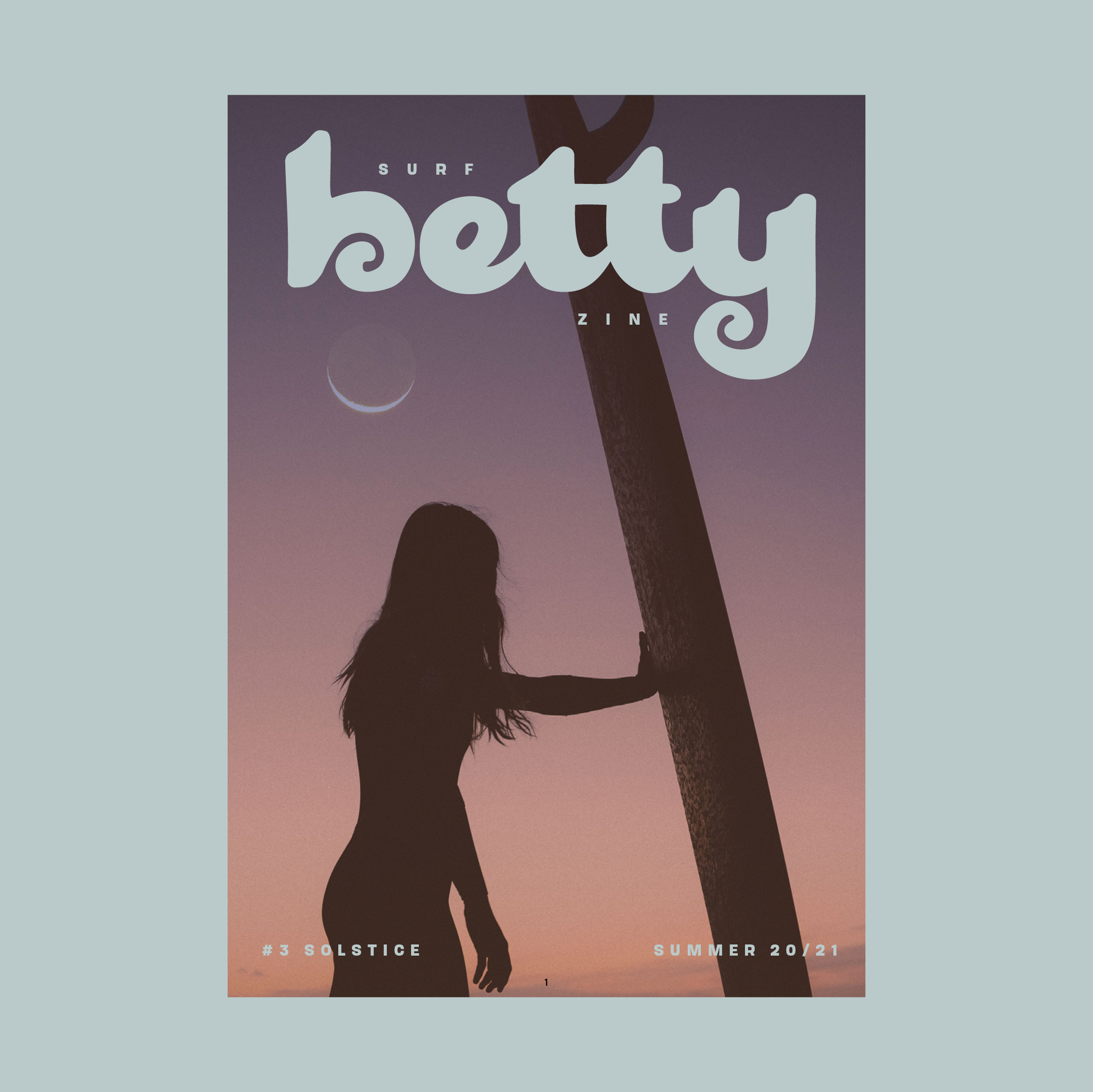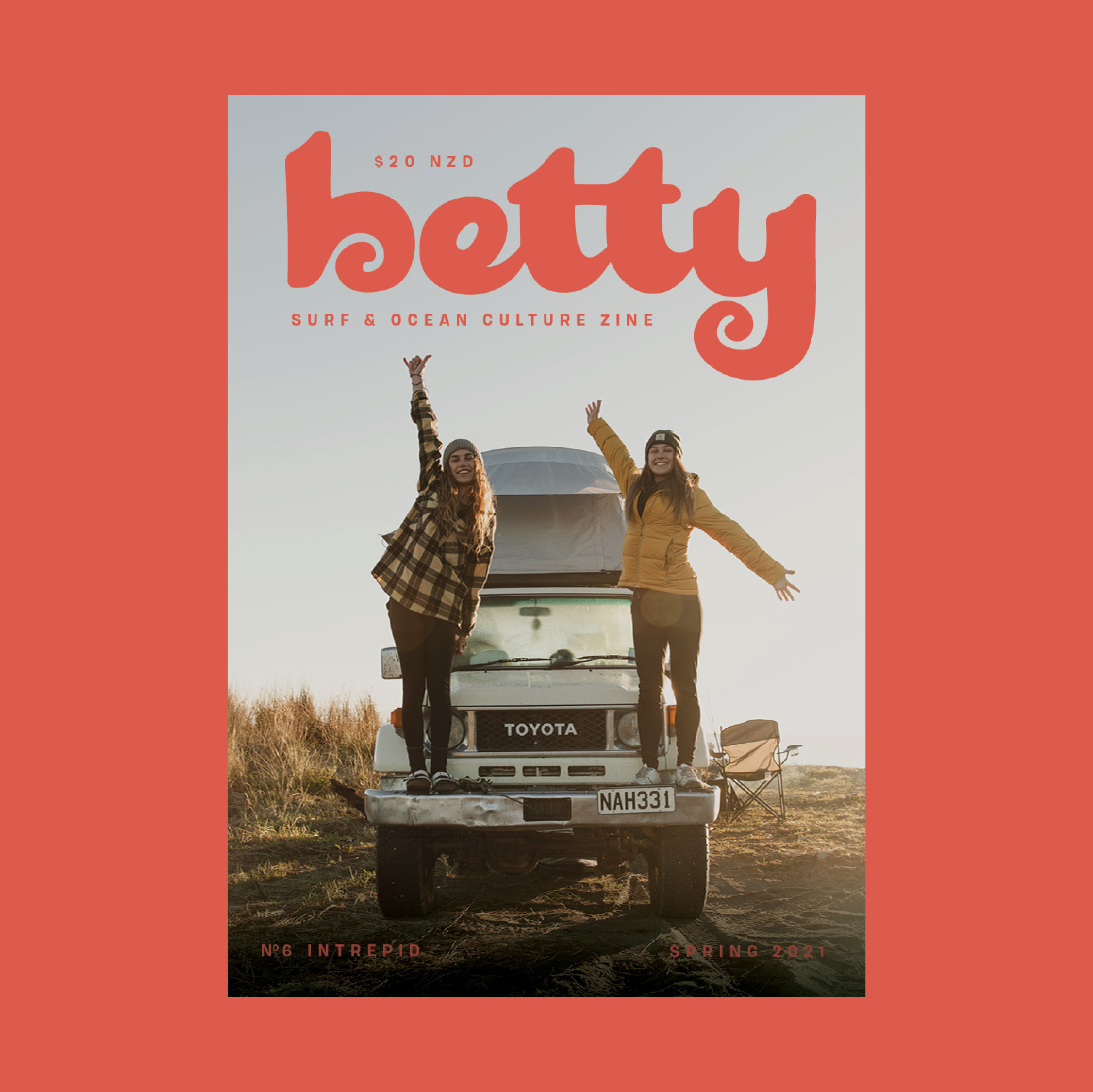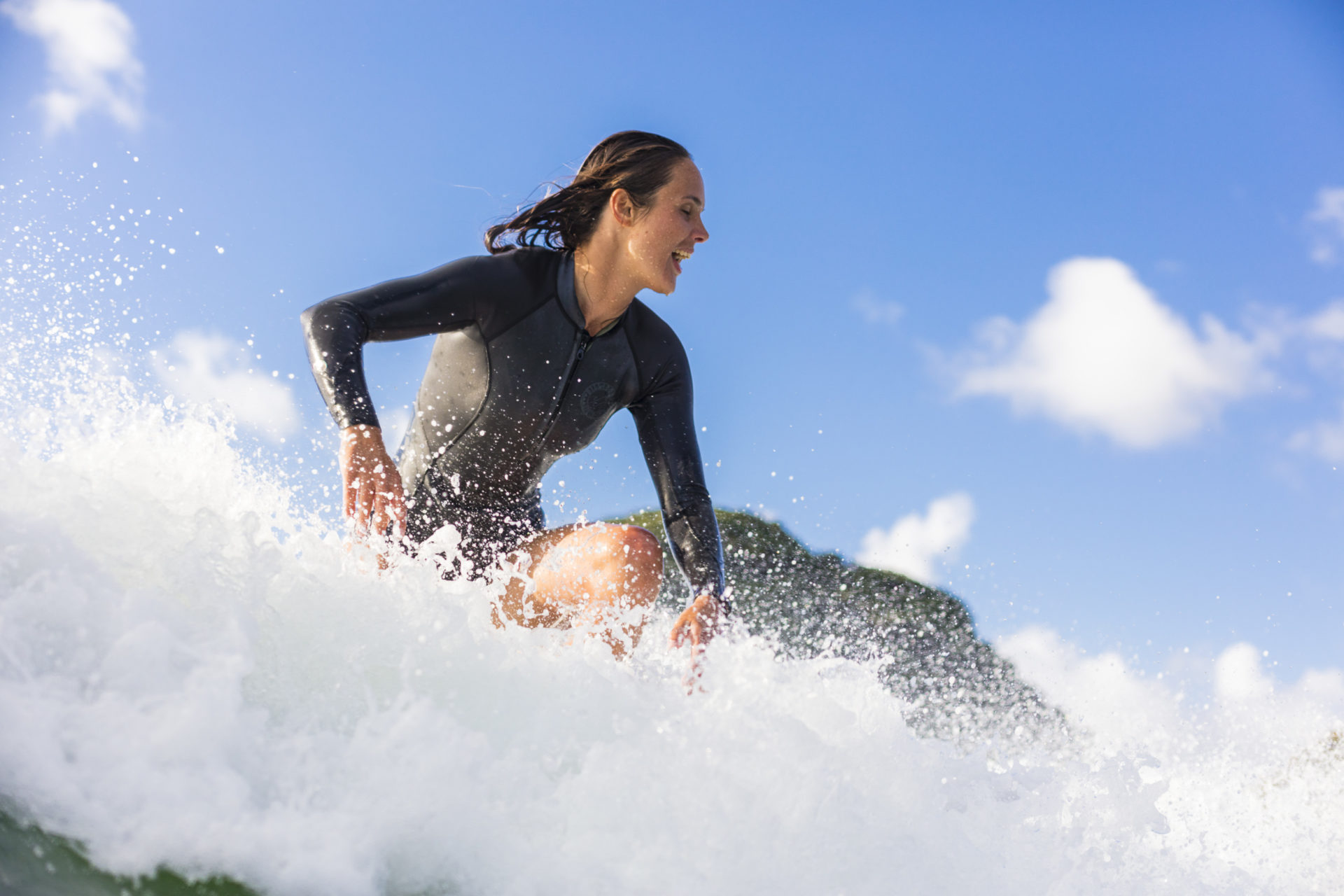Out of lockdown blooms a new magazine that puts women at the centre of New Zealand surfing culture and champions their connection with the ocean. Find out how these three, in their early 30s, turned lockdown adversity into a magnetic creative surf production … and why it is here to stay.
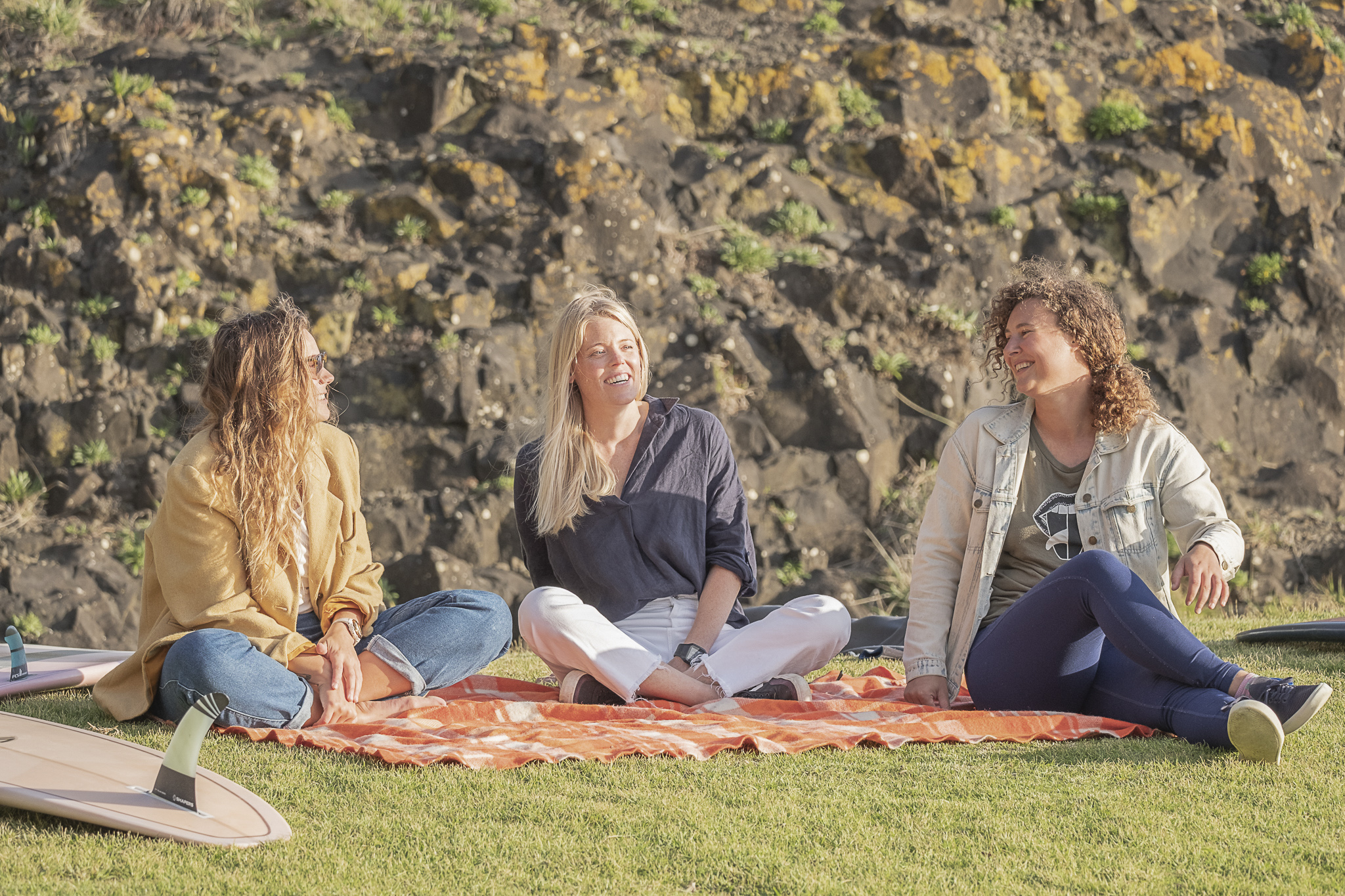
I meet Rachel Lewis over a Zoom call during lockdown. She has a gap in her day between setting tasks for her high school pupils who are also tackling their schoolwork from home. She’s happy to talk surf and lights up like a grommet who’s about to surf a new board.
Rachel, 32, is the editor of New Zealand’s newest magazine: Betty Zine. It’s a collaboration with Zofia Seymour, 30, and Stephanie Brookes, 32.
“Zofia is a freelance graphic designer and outdoor fanatic,” Rachel smiles. “Steph runs her own business called Methwise and loves being a mum to her three-year-old.”
Rachel grew up in Minnesota, USA and came to New Zealand on a student teaching practicum for two months in 2012. She went home to graduate, then moved back to New Zealand in 2013.
“It was only supposed to be for one year but it’s been eight,” she laughs. “At the moment, my full time job is teaching at a high-school.”

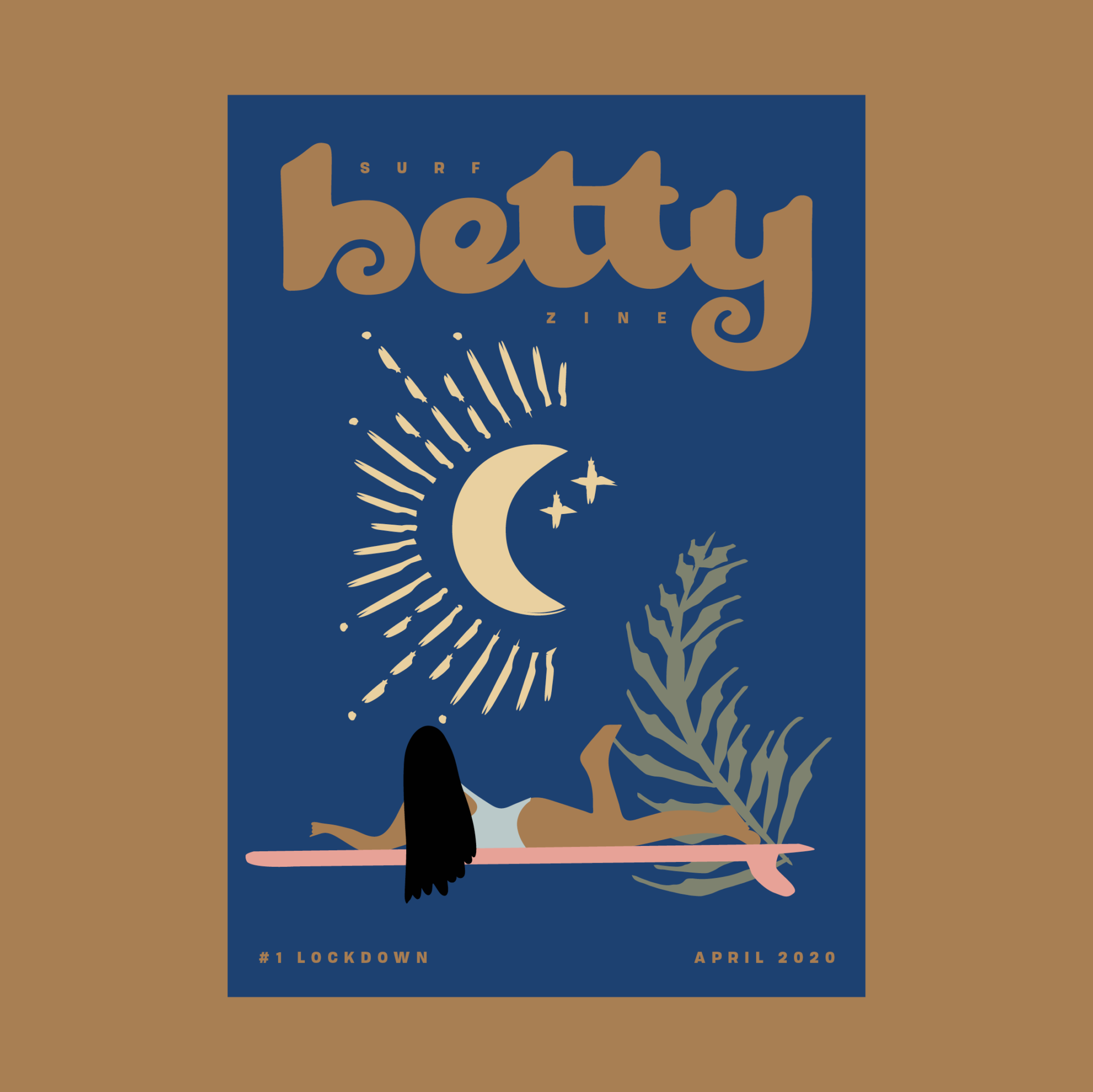
Betty Zine was originally intended to be a one-off zine for women to share their creative pursuits during the 2020 lockdown.
“Zofia had made zines back in her uni days and posted in a women’s surf group asking whether anyone would want to contribute their ocean-inspired work so she could create a zine for everyone as a sort of keepsake,” Rachel recalls. “I was working on a creative writing degree, so I put my hand up to help with editing and content. Steph was an admin on the group and has long been involved in the surf community so she offered to help get people involved in the zine.”
“Our inspiration has always been our community. Betty started off as a place for everyday women to engage with an authentic representation of themselves within surf culture and we aim to make that space bigger as Betty grows.”
For Rachel, her connection to the ocean hasn’t been lifelong – she didn’t see the ocean until she was 13.
“To be honest, a lot of the time it scares the shit out of me, but I can’t stay away from it,” she admits. “I might not ever be fully comfortable in the ocean, but I’m working on it.”
She says life in Muriwai is the best with a small community. Rachel’s favourite weekends are when the sun is shining and she has no plans, except to take her longboard out.
“Several of my friends and I usually wind up on a mission together chasing waves on the east coast in autumn and winter,” she explains. “I love surfing with friends and my partner. We don’t take ourselves too seriously and it’s all about the stoke.”
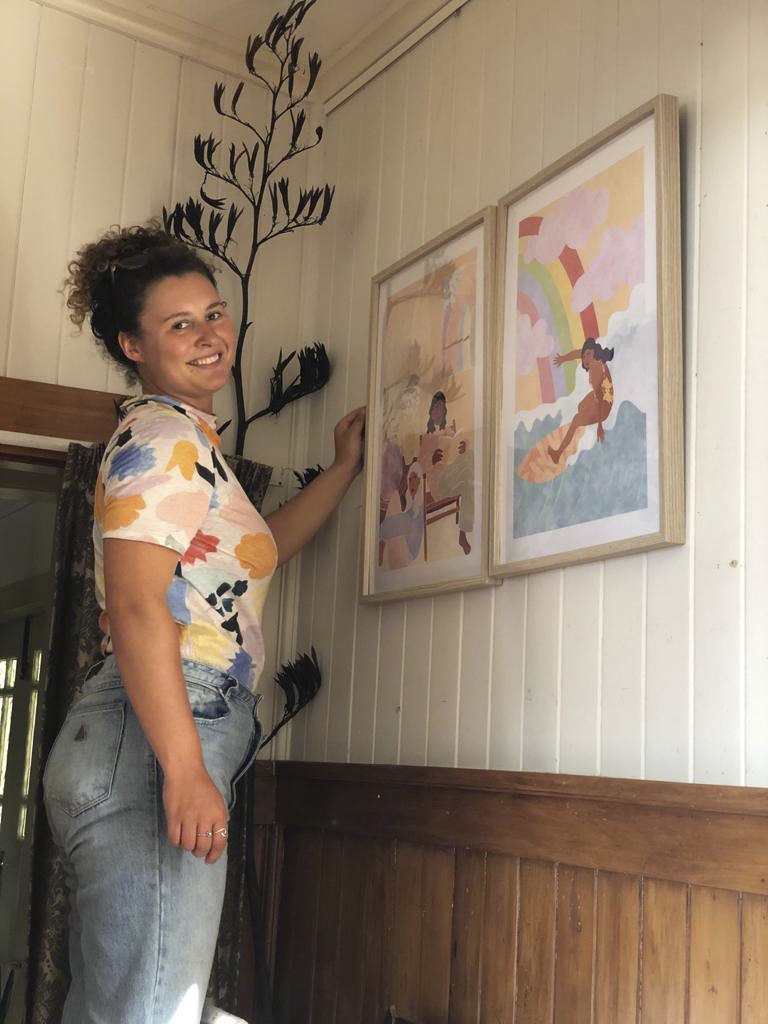
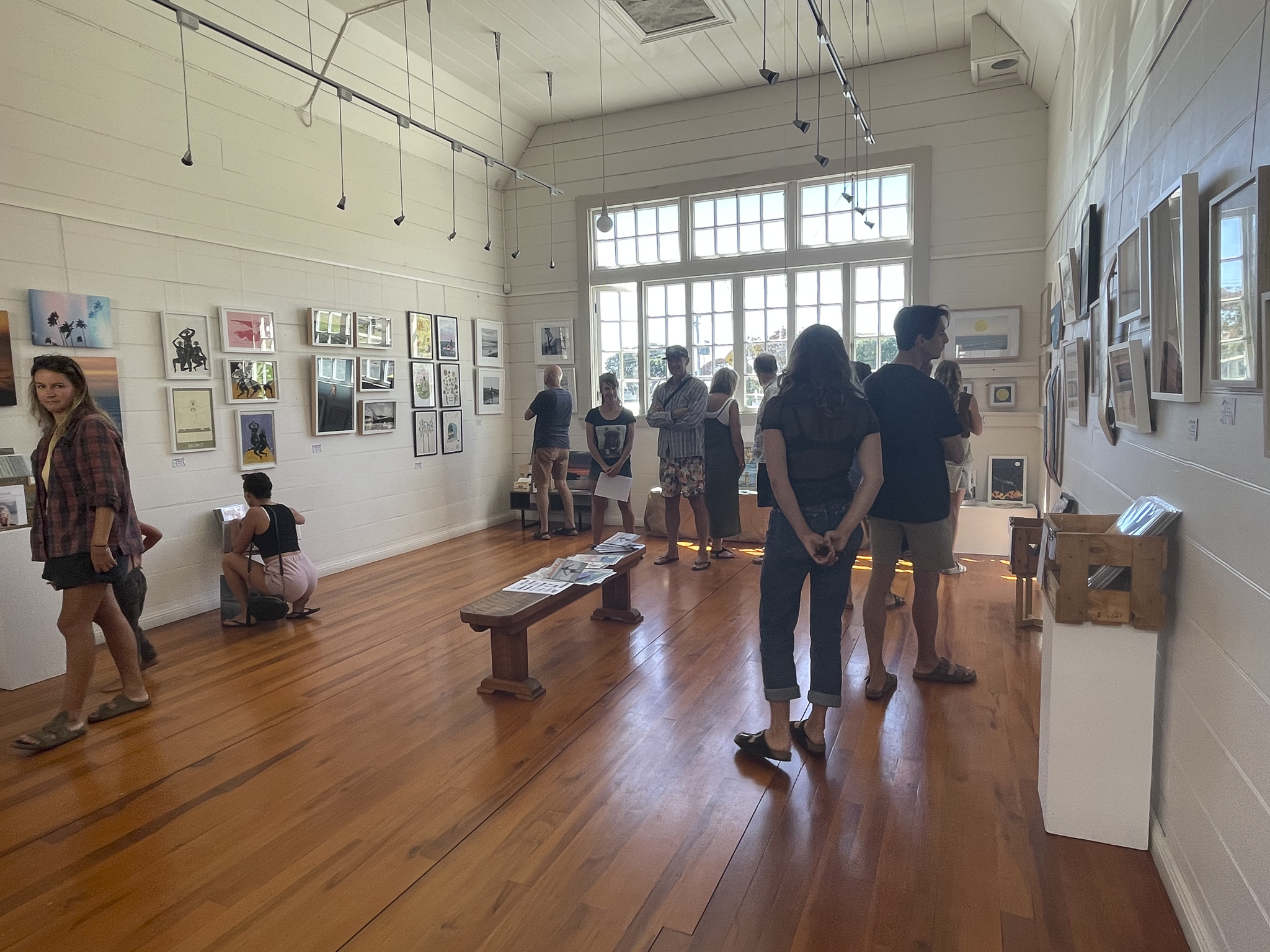
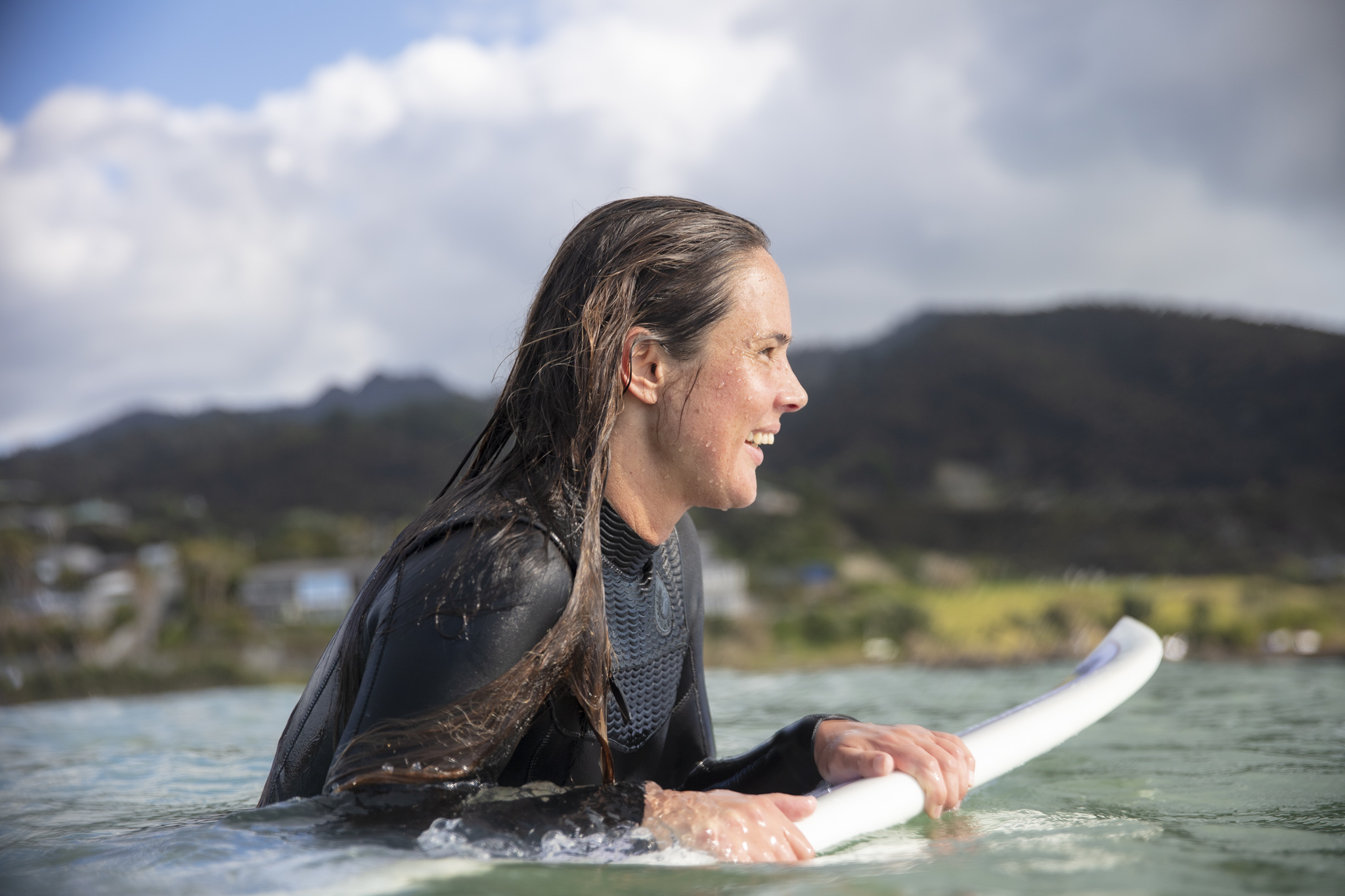
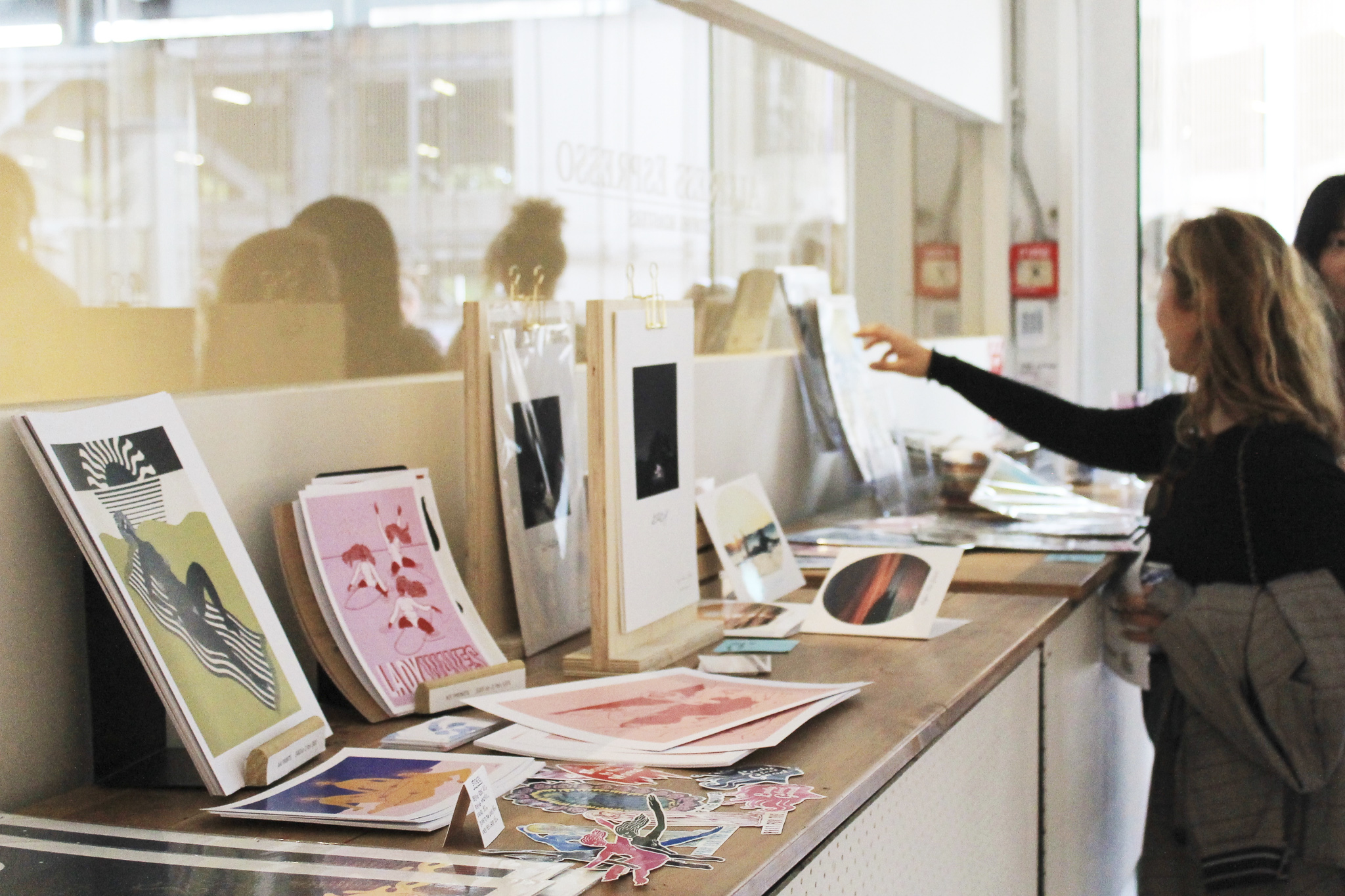
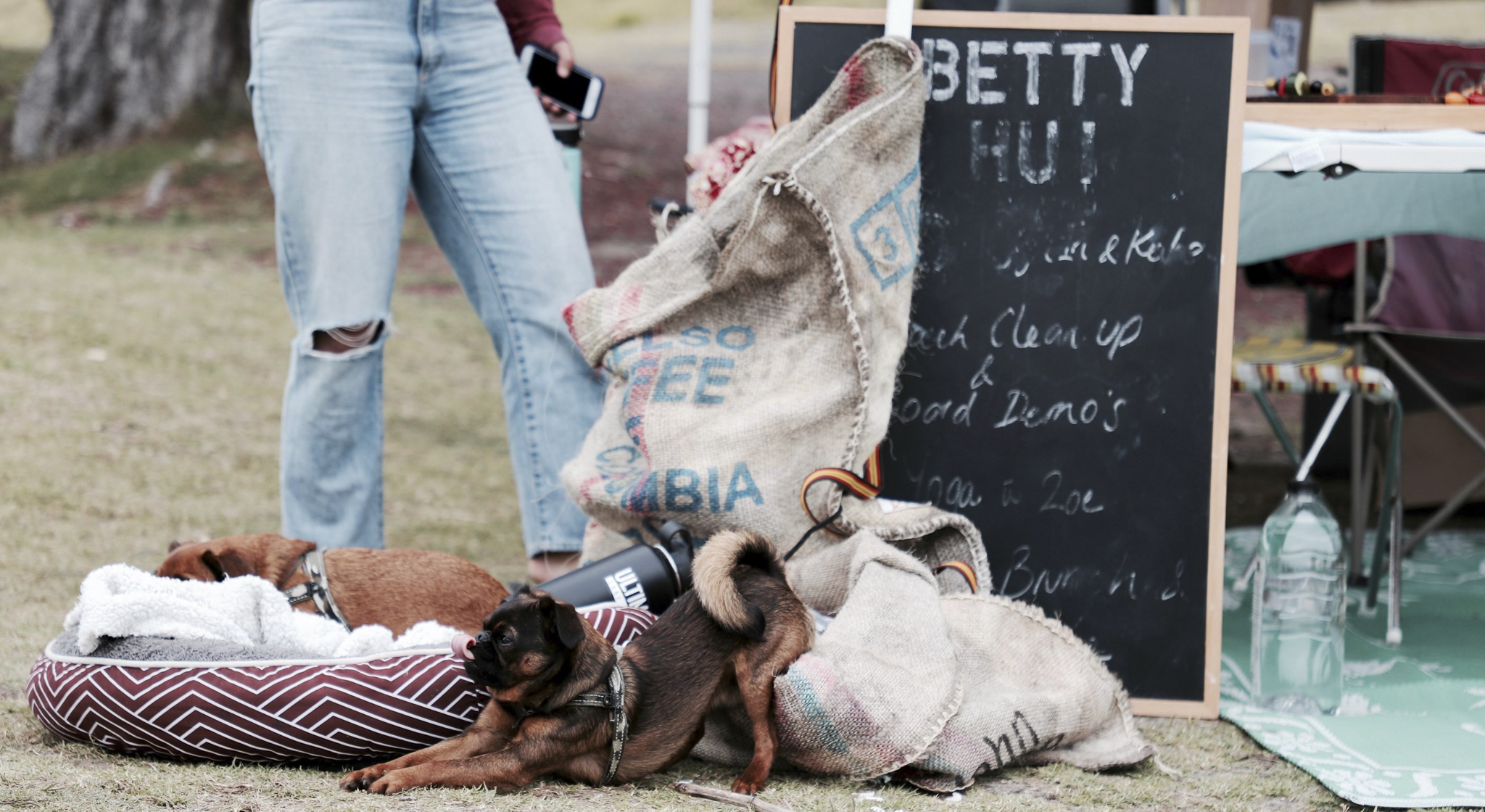
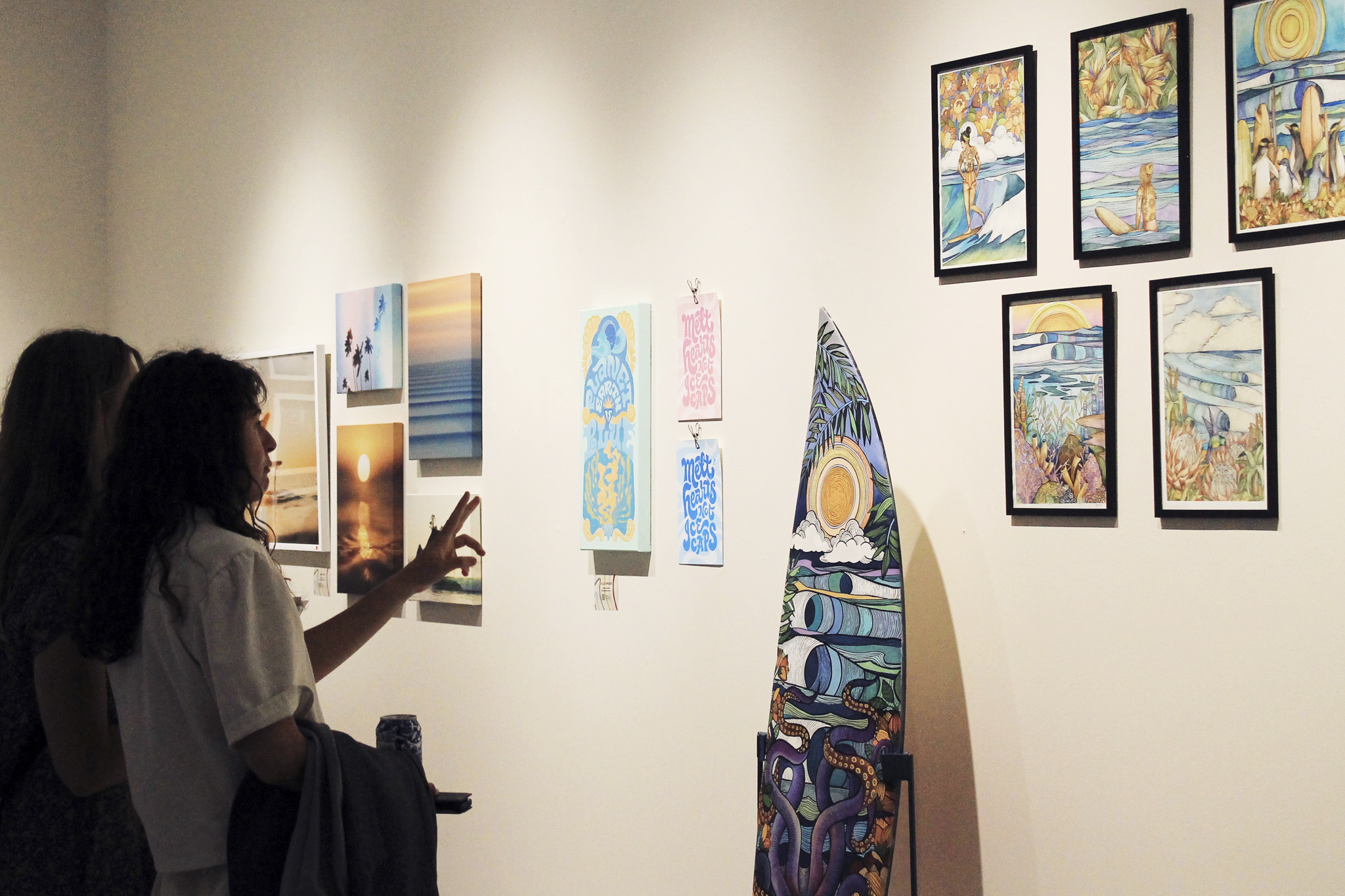
Zofia has always lived by the sea and feels a bit lost away from it, even though it took a family trip to Fiji when she was 25 for surfing to click for her.
“I went back home to Auckland and my mum bought me a surfboard for my birthday,” Zofia recalls. “My next self-taught surf attempts were out at Muriwai and that started me on a path to structuring my life around surfing.”
Before surfing Zofia worked full time in big fancy design agencies in the city.
“Now I have totally different goals, aims and desires,” she laughs. “It’s been a five-year ongoing process to try and salvage some of my past-life skills and make it work with my new priorities.”
Steph grew up in the water, and for a few years was a New Zealand rep for both swimming and waterpolo. Surfing started out as a fun escape for her that wasn’t just training.
“Now I try to surf every week, or when it’s offshore and not too big,” Steph offers. “Being a mother and business owner, I have to take the 45-minute or hour session when available with absolute gratitude. I also have a little fella to tend to (and my larger, more grown up fella) so when I’m out, I spend less hours mucking around and socialising in the surf. Now it’s the ‘hour of power’ or ‘hour of wipeouts and rip currents’.”
Steph said Muriwai was absolutely like Betty – a hugely supportive community of nature-loving people, many of them surfers, or horseriders, or “just general GCs”.
“Surf trips are always the best fun for me and my family, waking up pre-dawn and travelling in our vintage caravan up and down the country,” she smiles. “And of course, the Betty Mingles are great to be involved in. We have heaps of fun and meet new lady-sliders with a beer or tea afterwards.”
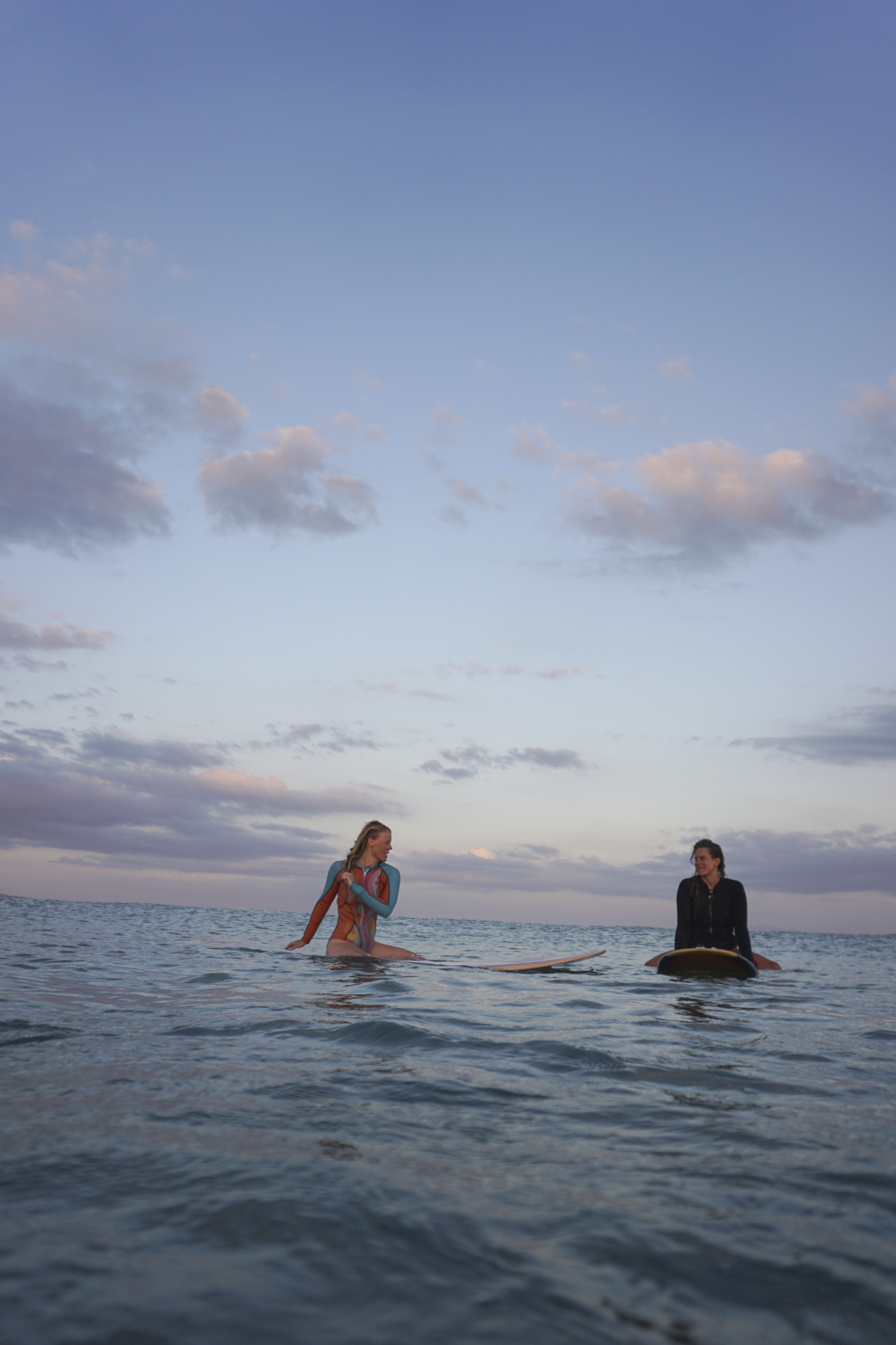
Betty Zine sprouted to life during the first lockdown. Zofia lost all her design contracts and then suddenly surfing was banned, too. That made an already stressful time even worse for surfers.
“I wanted to do something positive with that energy and use my skill set in collaboration with the amazing community of women online,” Zofia explains. “At uni I had worked on many collaborative zine projects and thought it would be a great thing for people to engage in a creative project to keep and to reflect back on that time. It was only supposed to be a bit of fun and when we started getting submissions we were blown away by the amount of talent, joy and support we received. So we kept going.”
“Our purpose now is to show off the fucking amazing talent of women out there,” she smiles. “The exceptionally high standard of art, photography and storytelling we receive continues to blow my mind, as well as the amazing and diverse array of businesses, lifestyles and other talents our community has. It’s also highlighted how narrow the view of surfing can be – from the style of photography to the obsession of it being just about supreme athleticism, big waves, or the fetishisation of some lone masochistic mission.”
“That view is not relatable to many of us who will never want to do airs or get barrelled in a massive wave,” Zofia continues. “There are many other nuanced beautiful and totally different ways to engage with surfing and ocean culture and we are showing those different ways.”
Rachel tells me that Betty opens the door for women to engage with surf culture in a way that is authentic and representative of them.
“Our stories are written by the very women you see out in the lineup everyday,” Rachel adds. “Betty is side-stepping that mainstream media image of what women have to be, look like, act like to create a space for our community that is more real and relatable. I think it shows women, and people in general, that if you love surfing and want to be part of the culture, then come as you are and that’s enough.”
“Betty is side-stepping that mainstream media image of what women have to be, look like, act like to create a space for our community that is more real and relatable. I think it shows women, and people in general, that if you love surfing and want to be part of the culture, then come as you are and that’s enough.”
Rachel Lewis, Editor, Betty Zine
“Often our contributors didn’t realise before now that what they had to offer was genuinely valuable,” Zofia offers. “We’re a tiny amateur publication, but when people are included in it, they realise, ‘Hey my photography is actually good, my story is actually one that people want to know about’.”
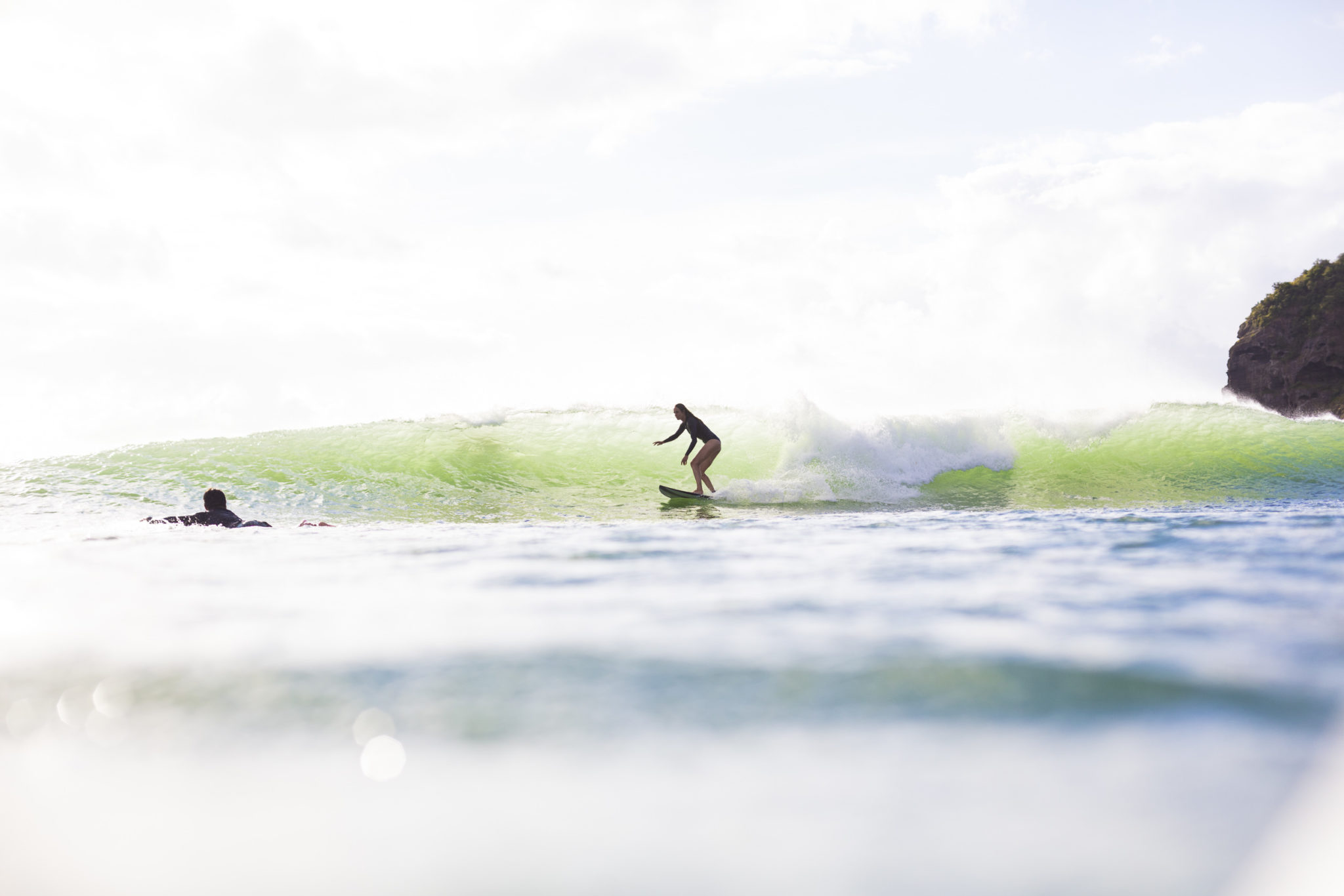
Betty Zine’s arrival comes just as women’s surfing has begun to explode. Barriers (and stereotypes) have crumbled and the energy around our leading female role models is at an all-time high. But Zofia admits there is still a very long way to go in New Zealand.
“There will always be room for improvement,” she states. “The lack of financial opportunities or sponsorship for women is still huge. As a woman, it’s still difficult to navigate the surfer lifestyle just in terms of basic things like safety (especially overseas), safe mentoring, or the simple lack of gear available. I can’t speak for all women, just my own personal experiences and hangups. I also still experience male entitlement out there in the lineup where I might often be the only woman (or one of a few), from drop-ins to back paddles to unsolicited advice.”
Rachel admits the question of women’s place in surfing in New Zealand is a big one. She doesn’t know if she is the authority to answer it.
“When I first started surfing, I remember thinking that surfers as a whole in New Zealand didn’t seem to buy into the surf industry stereotypes as much,” Rachel explains. “There definitely were, and are people that do, but there are also a whole lot of guys and gals who are great surfers, spend their whole lives in the water and don’t have sun-bleached blond hair and beach bods clothed head-to-toe in Amazon brands. There is a much more utilitarian vibe to surf culture here, and I think that is reflective of New Zealand culture as a whole. Stereotypes do exist here for sure, but I think in some ways they never gained the same foothold as in other parts of the world.”
“Women’s surfing is one example of this,” she considers. “We are conforming less and less to the images sold to us in mainstream media by the industry. Instead, women (and guys) are supporting local indie brands that are popping up everywhere who represent us more authentically and this is changing the way we engage with women’s surf culture.”
“I think women’s surfing is in the best place it has ever been and it will continue to keep improving as it inevitably evolves. Surf comps are starting to recognise the importance of equal pay for men and women athletes, as well as encouraging more females, young and old, to compete. The women’s indie surf industry is growing, from surfwear to wax and board bags, and it is successfully side-stepping the big brands because they are local businesses that understand how women want to be represented in the surf.”
“We are conforming less and less to the images sold to us in mainstream media by the industry. Instead, women (and guys) are supporting local indie brands that are popping up everywhere who represent us more authentically and this is changing the way we engage with women’s surf culture.”
Rachel Lewis
At a time when we’re finally starting to see some of the major surf brands move away from the gratuitous representation of women – I ask the Betty Zine team what their take is on body image in surfing.
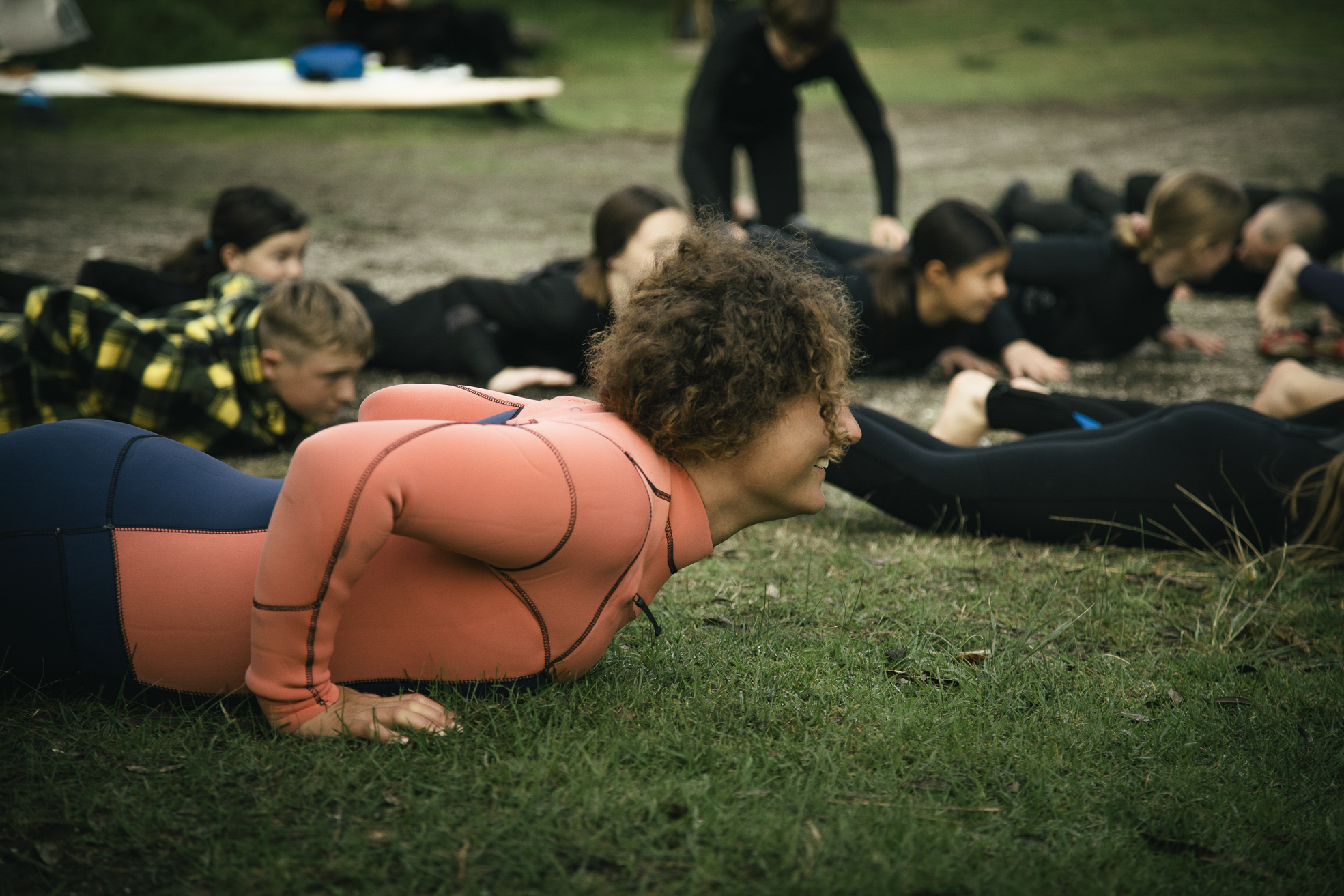
“It brings me such joy to see women even 5-10 years younger totally without many of the hangups and social conditioning that I personally experienced,” Zofia begins. “It’s really hard to let go of some of these deeply held beliefs where you judge yourself for your looks not your skill, especially with the new challenge of social media and influencers. Although female athletes are speaking up about it, the pressure is very real and is definitely affecting younger women and girls.”
“It’s really hard to let go of some of these deeply held beliefs where you judge yourself for your looks not your skill, especially with the new challenge of social media and influencers.”
Zofia Seymour, Betty Zine designer
Rachel agreed with Zofia citing social media as a major factor, but she said it was encouraging to see the brands moving away from this kind of portrayal for women.
“It definitely still happens, but there is change occurring and that’s encouraging,” Rachel shares.
“It is important for young girls and women to see all body shapes and sizes out there surfing in gear that is comfortable,” she offers. “There is no one-size-fits all for surfing, and the only thing that should determine how awesome you look out there in the waves is the number of hours you put into the sport and how stoked you are to be there.”
“There are more and more young girls getting into the sport on a competitive level and it is so encouraging to see their whanau, coaches, clubs and communities backing them for their athletic abilities and skill. To see them being treated and talked about as real athletes is so cool, and I know the future for our young girls will continue in that direction. Change is slow though, so we just have to keep working at it and sending the message as a community.”
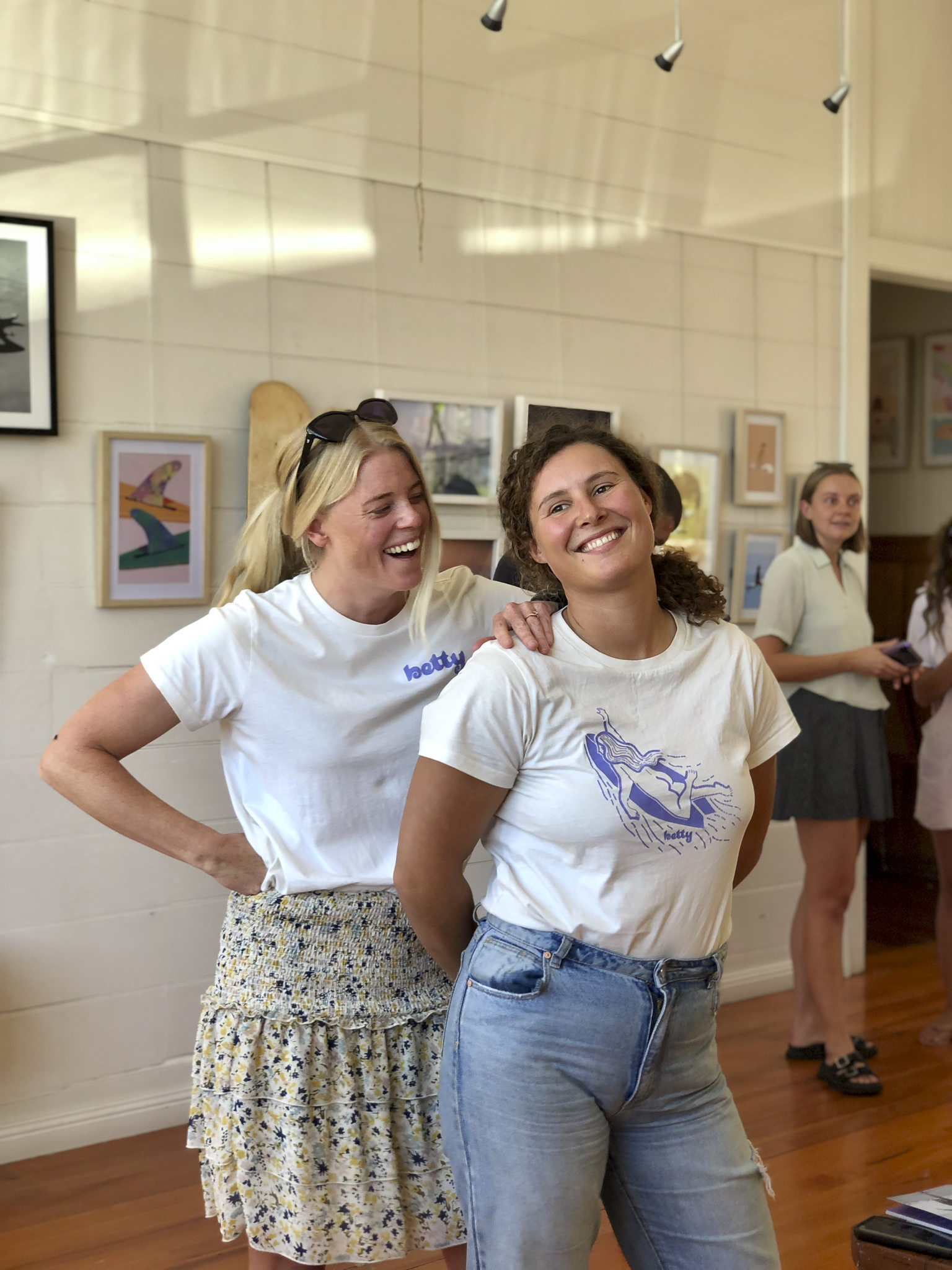
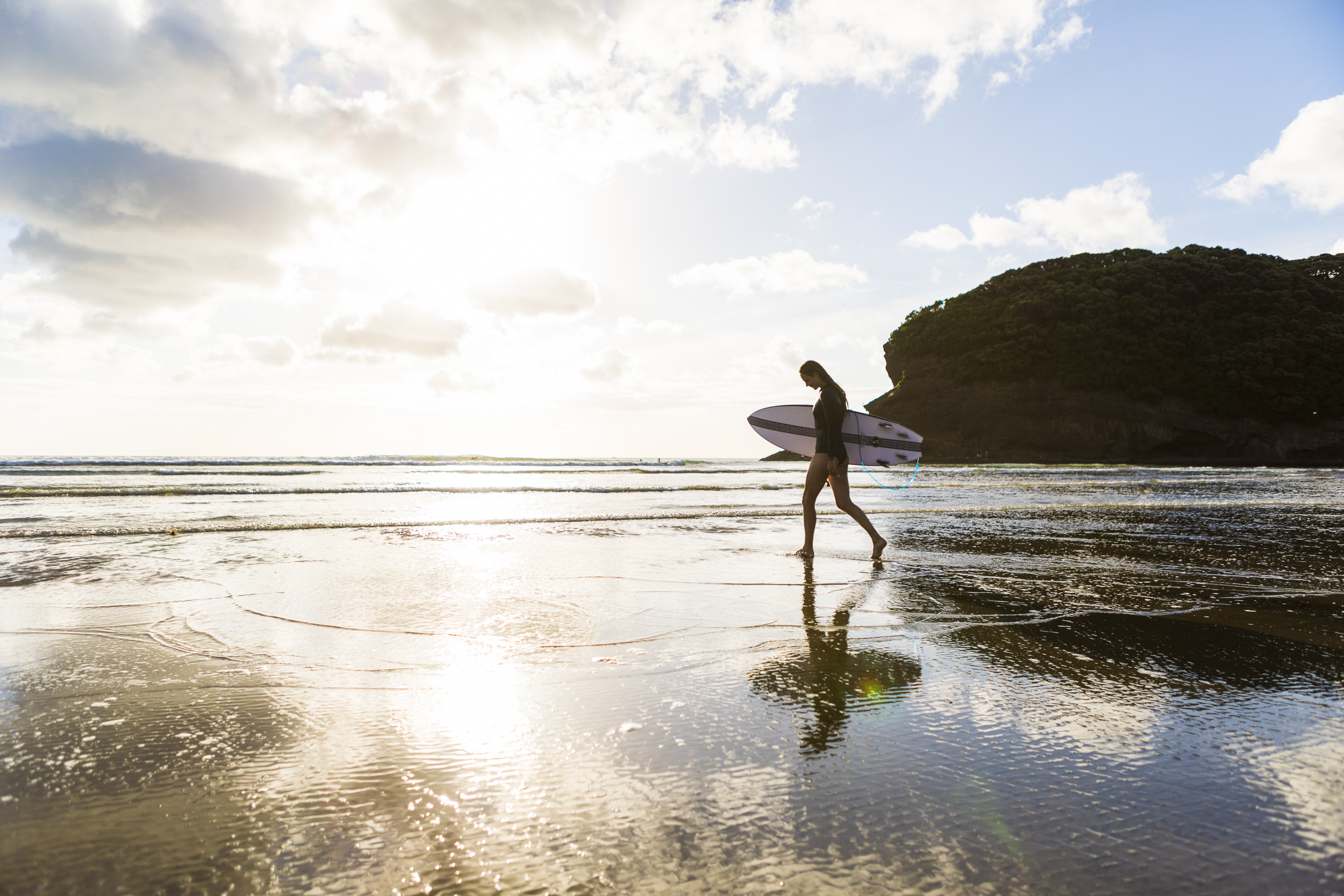
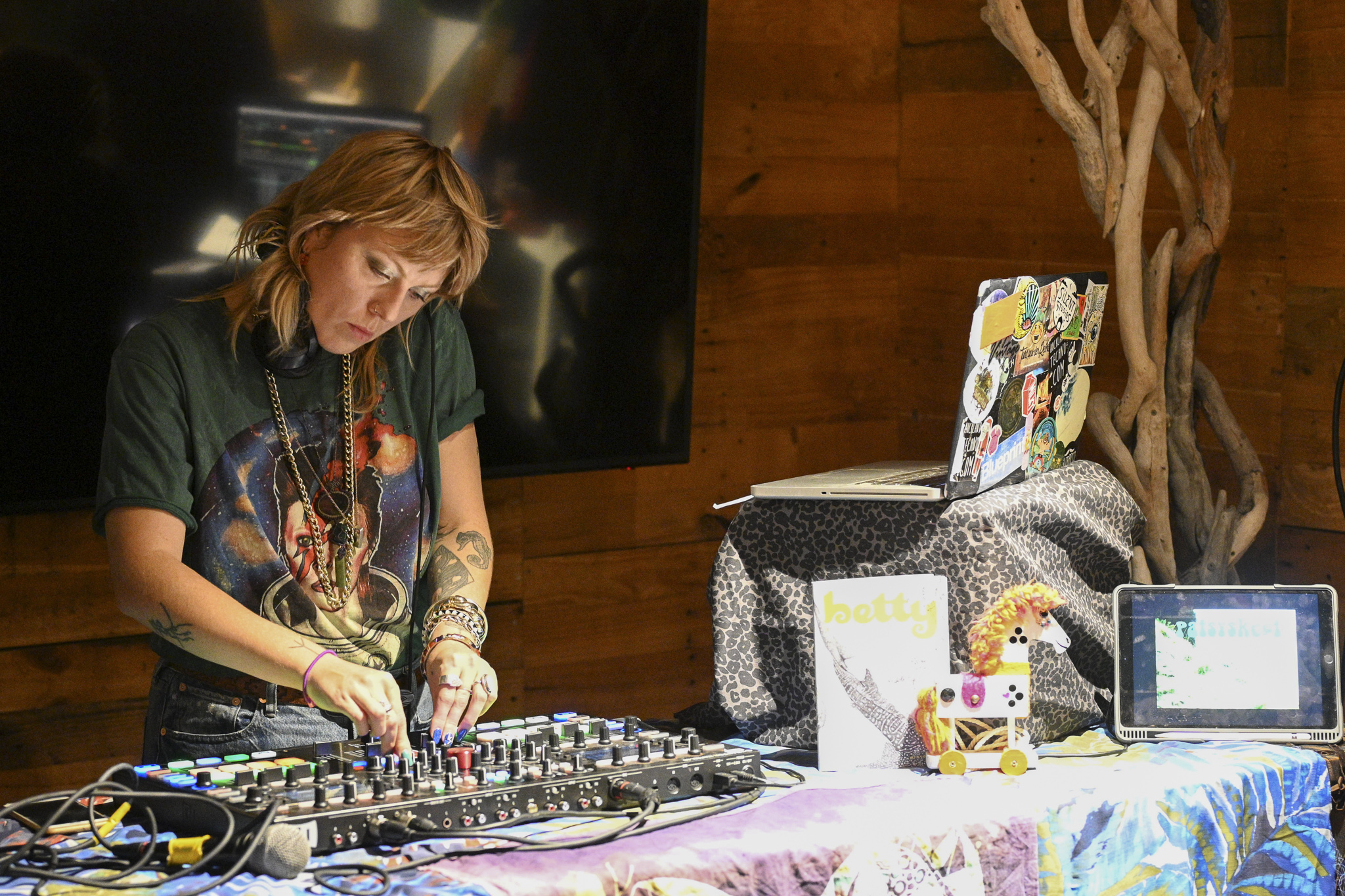
Betty Zine has ended up right at the centre of that community and is supported mostly by small New Zealand businesses, often women-led and all like-minded.
“Deep Creek, among many others, has been an awesome partner for our events and they have been great in helping us to get our name out there,” Rachel tells me.
“Some magazines are proud to be ad-free, which is great, but because we often work with small, women-run businesses, we think ads are mutually beneficial,” she adds. “The ads help us to fund the production of Betty while in turn putting those businesses front and centre to our audience, so they also get their name out there and our community can support them. We want women’s surf culture to be filled with legitimately rad shit and we love that our community can shape that culture.”
Rachel admits that these are hard times to be running a print magazine let alone getting a new one off the ground.
“One thing we’ve learnt about the surf industry itself is that it is actually really hard to get financial support,” she admits. “Everyone is super keen to offer gear or trade, but getting cash is tough and that’s really what we need in order to make the zine happen. We’re learning so much about this industry ourselves, we’re constantly chopping and changing the way we do things as we go. We don’t always get it right but we’re trying.”
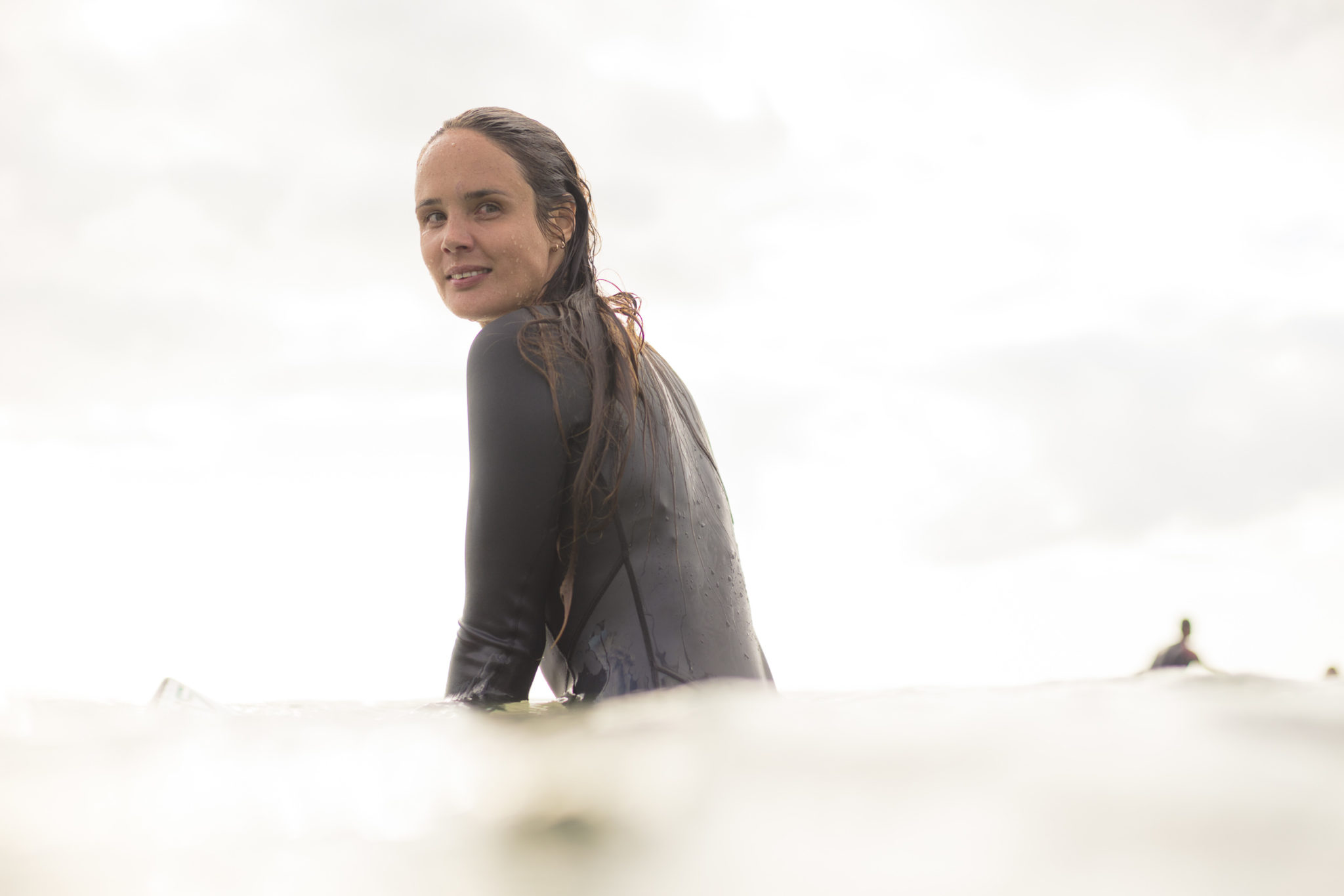
The energy with the Betty Zine crew is amazing and part of what has garnered such a vibrant community. They each have a philosophy for life that they live by.
“You have the power to design your life,” Zofia explains. “Figure out your priorities, test different scenarios, and have long term strategies and goals.”
“Don’t accept things as they are, because that’s how everyone else does it, or because you have fomo and it looks cool on Instagram. Figure out how it is relevant to you. Don’t surf shortboards because someone told you girls are only good at longboarding and you wanted to prove them wrong, when you really love longboarding. Don’t surf big waves if you feel really comfortable in smaller ones. Don’t work 9-5 in an office if you’re an introvert and really do your best work at home. Don’t buy a van if you’re much happier staying local and only surfing your own breaks. Figure out what suits you best and then do that.”
“The pressure to measure your identity as a surfer by your surf ability, in traditional ways,” begins Zofia. “Like, you’re only a surfer if you can paddle aggressively and have no fear and shred big waves … it’s taken a while for me to let go of that mentality and realise that I engage in being a ‘good surfer’ in a totally different way. You do you, girls and dudes.”
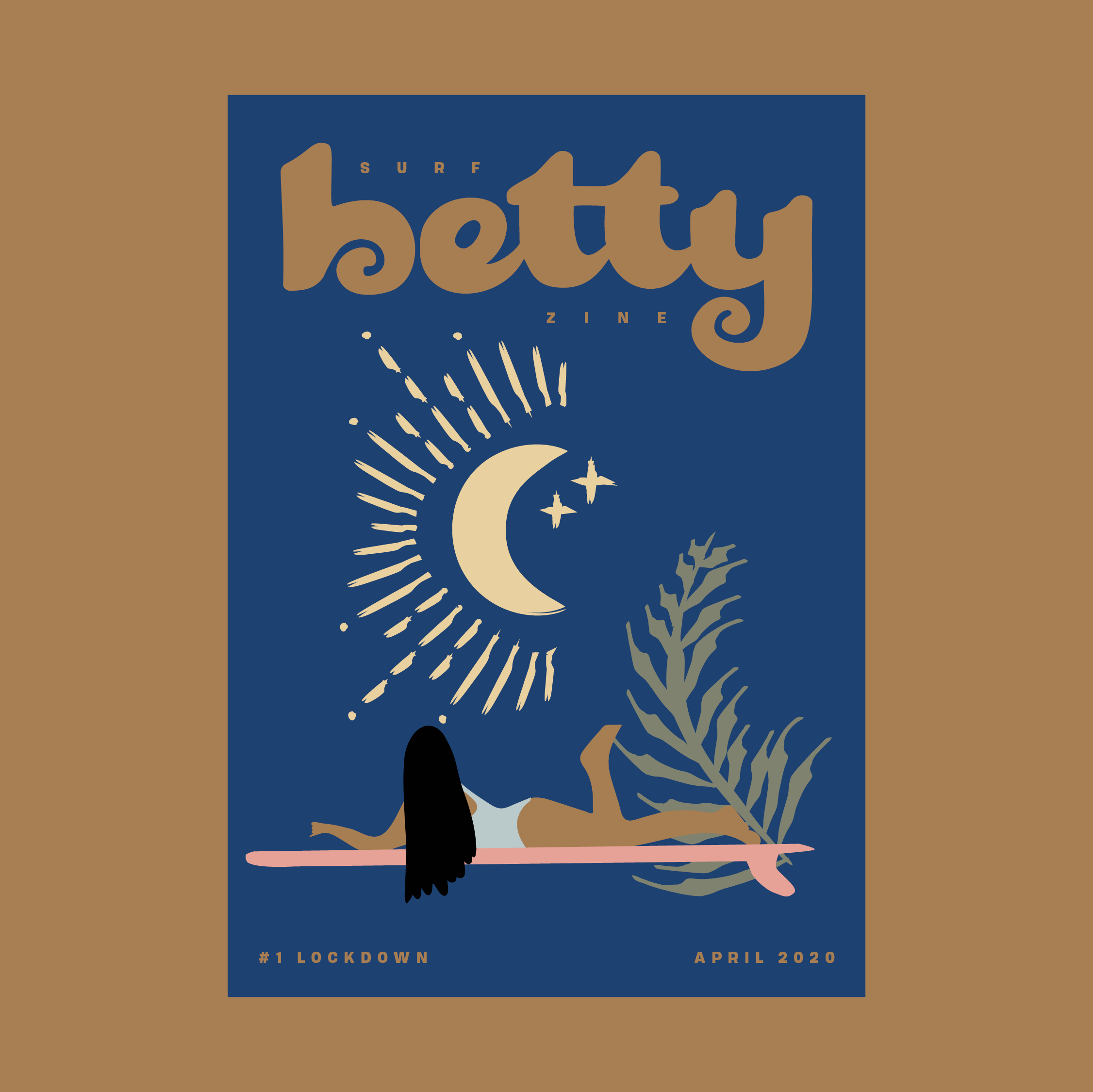
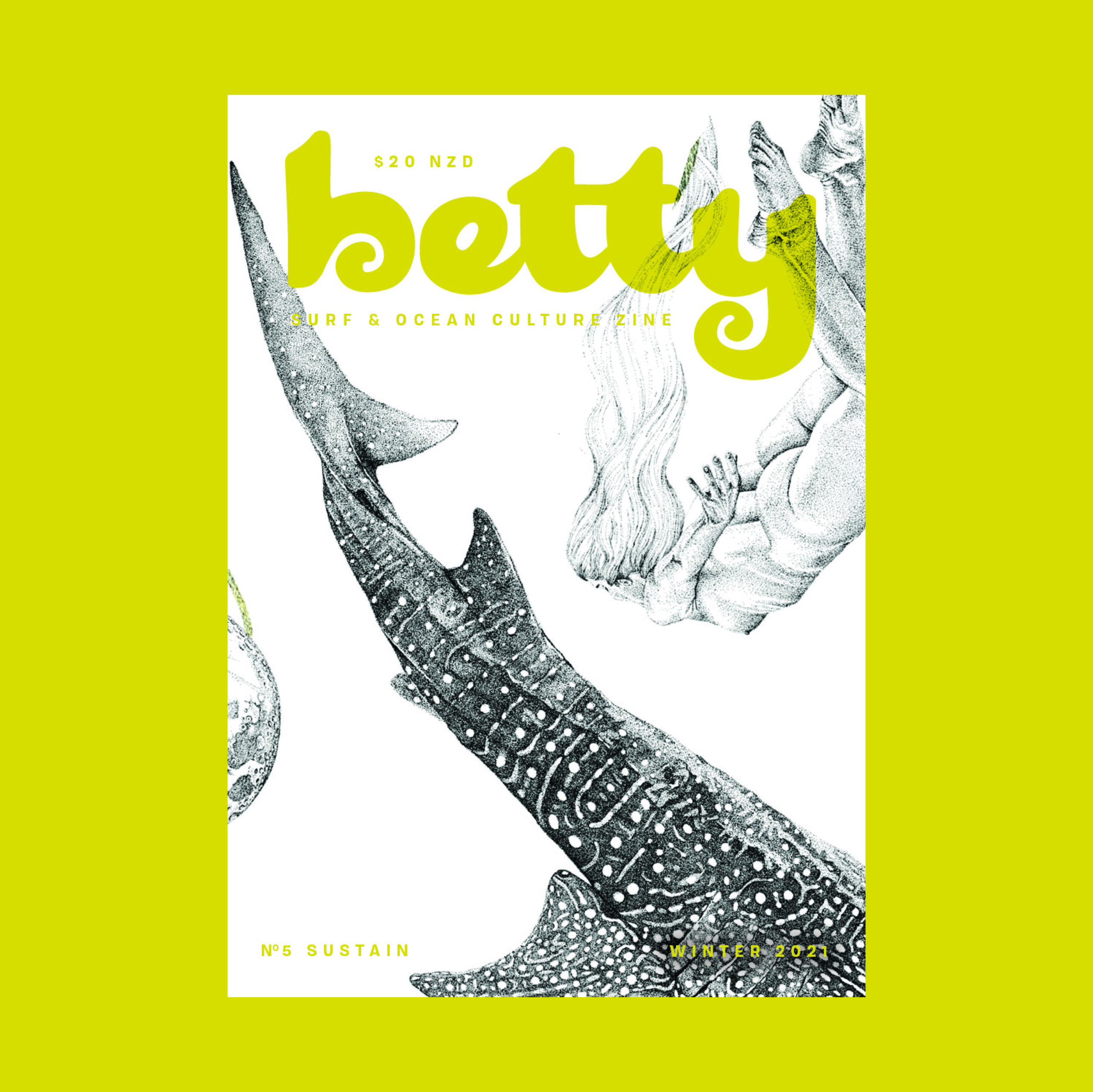
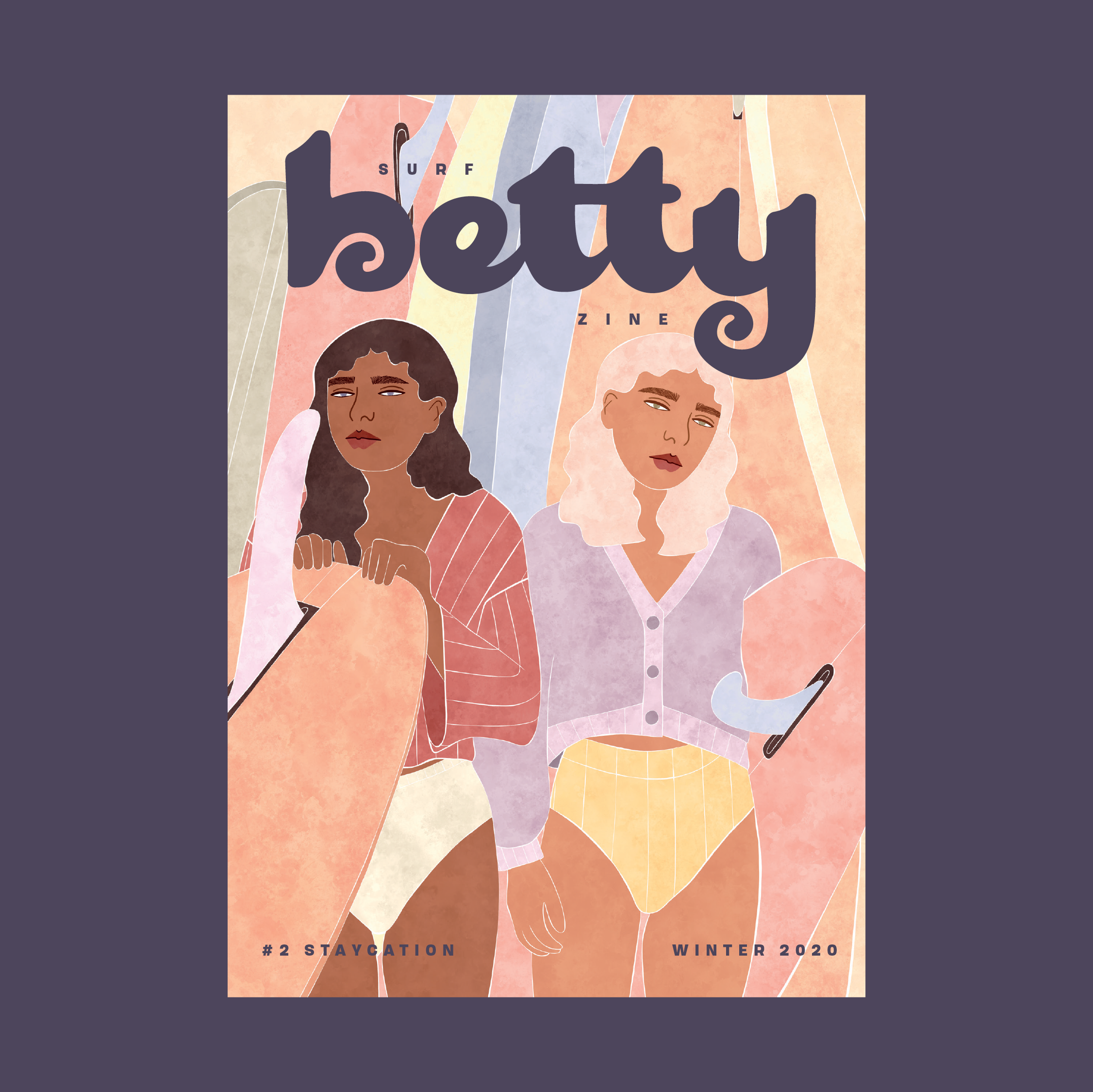
Steph tells me directly: “if your dreams don’t scare you, they’re not big enough!”
“Next on my list for Betty, once the world opens up again, is to promote sustainable surf travel,” she smiles. “Exploring and creating or guiding sustainable tourism or surf retreats would be a huge adventure for me and my family. Westerners travel to remote locations to surf beautiful waves, however the environmental sustainability of many of these locations and tourist operations are in dire need of help. I would also like to be living between here and the surf island of Florianopolis, Brazil, with my gorgeous husband and kids.”
Rachel admitted her philosophy on life was always changing as she grew up and had more experiences.
“I want to work less and play more without taking any of it too seriously,” Rachel reveals. “My partner says that life is the longest thing we’ll ever do, but I’ve always lived by the mantra that life is short. I think both are true. I want to find that balance between making the most of the time I do have, but also not stressing when I don’t have everything right now, because I get overwhelmed by that sometimes.”
“If I could do anything, I’d travel around the world and have more time to spend in Minnesota with my family. I’d meet cool people who do cool shit and write their stories, as well as my own. I’d also pursue all those hobbies I never have time or money to learn.”
Rachel said she wanted to thank everyone who has backed Betty and supported what they do, in whatever capacity.
“The zine is something we do because we love it and it is important to the landscape of surf culture in New Zealand. It can be really challenging at times, but seeing our community turn up for us is so encouraging and it has genuinely kept us going.”
